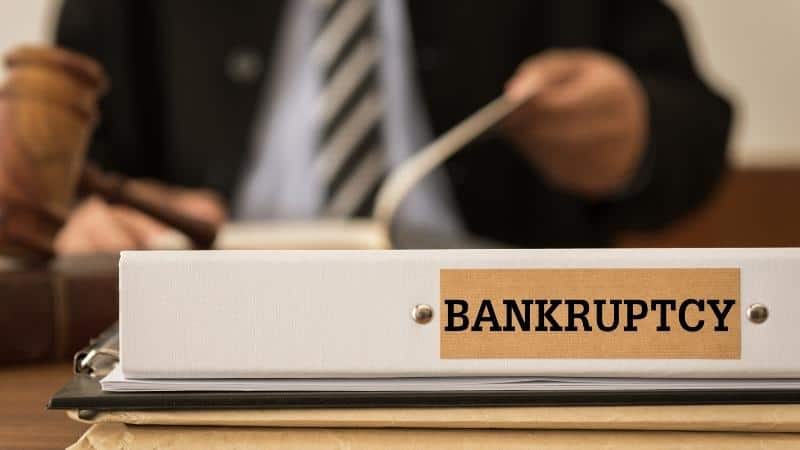You are not bound to employ a lawyer to file for bankruptcy. Should you, however? It is entirely defined by the complexity of your particular instance. If you have little assets and don’t make loads of money, you might be responsible for filing for bankruptcy on your own (without a lawyer).
However, while declaring bankruptcy by yourself can save you dollars, it is a difficult prospect. You’ll need to accumulate all of your financial records, file a large number of documents on time, and connect to your bankruptcy trustee. You’ll really be required to spend time learning about the applicable federal statutes.
To begin, you should be aware that bankruptcy is a legitimate debt relief alternative. It can assist you in getting out of debt, protecting you from debt holders, and giving you a new beginning. In reality, there were 6,393 from Louisiana for the financial year 2021. Bankruptcy may even help to start saving for retirement.
This writing includes step-by-step guidance to submitting for Chapter 7 and Chapter 13 bankruptcy alone without the guidance of a lawyer, as well as some few pointers to facilitate the process as straightforward and hassle-free.
Evaluate whether your earnings qualify for the means test
When deciding whether or not to file for bankruptcy without the need for a lawyer, the very first stage is to define a “Means Test” to see if you are eligible for Chapter 7 bankruptcy or chapter 13. A test form is provided by the federal govt.
There are also simplistic editions of the test available online. You’ll be asked about your monthly salary, debts (to see if they’re due and payable), non-exempt investments, and the number of individuals in your residence. When you own a few assets, your household income is less than your state’s average, and you haven’t been convicted of corruption, the bankruptcy procedure might be straightforward enough for you to solve on your own.
Get the reports of your credits and go through credit counseling
The following step is to acquire credit reports from each of the three major credit bureaus. Since creditors do not usually notify all three bureaus, you will require those three reports. A debt that is not reported will not be released in bankruptcy. Following that, you must accomplish a credit counseling and personal finance course. The United States Trustee Program maintains a list of affordable loan education agencies on its website.

Filling for bankruptcy
To initiate the bankruptcy filing process, you should first list the specific your prevailing forms of income, significant banking transactions in the preceding two years, monthly living costs, debt payments (protected and unprotected), and assets (except real estate). You should perhaps gather your tax records over the last 2 years, deeds to any property investment you own, car titles, and loan documentation.
Once you have collected these details, whether on your own or with the assistance of a lawyer, you must also decide which asset you presume is excluded from seizure under Louisiana law. To submit, you or your lawyer must proffer a 2-page petition as well as several other forms to the district bankruptcy court of Louisiana.
These forms, collectively known as the timetables, request you to define your existing financial situation and latest banking transactions (usually within the last 2 years). If your creditors or the judges believe or discover that you have not been completely forthright in your bankruptcy proceedings, the conclusion of your petition might be in jeopardy.
The court fee for a Chapter 7 bankruptcy seems to be $306. This payment might not be agreed to waive, and it might be paid in installment payments. The $281 filing charge for a Chapter 13 bankruptcy can’t be agreed to waive.
Bankruptcy under Chapters 13 and 7
As you can declare bankruptcy without a lawyer in some situations, there are exceptional cases regardless of the form of bankruptcy. For instance, if your corporate entity or partnership is going bankrupt, you will require the services of a bankruptcy lawyer.
If your earnings exceed and you perform poorly on the means test, you might just have to submit a Chapter 13 bankruptcy instead of just a Chapter 7. You can still declare bankruptcy without the need for a lawyer in that particular instance, but it might be more challenging. This is due to the fact that Chapter 13 bankruptcies are far more intricate than the bankruptcies of chapter 7.
The term “liquidation bankruptcy” refers to a Chapter 7 bankruptcy. Utilizing bankruptcy exclusions, several more bankruptcy filers avoid leaving their homes or vehicles. We’ll go over just how your personal possessions could be jeopardized further down. To request Chapter 7 bankruptcy, you must quite often be eligible. Qualification is premised on suggesting testing in the United States.
In Louisiana, means testing is predicated on household income levels. Chapter 7 bankruptcy cases move quickly. In 120 days, you can start receiving a bankruptcy release (debt relief). It is less costly. You might well lose resources in this situation, but you might also not owing to bankruptcy exclusions.
In contrast, if you file a Chapter 13 bankruptcy, you should also proffer a suggested payment schedule. After you have reimbursed your plausible monthly outgoings, how many dollars will you have chosen to leave over just to put forward into your outstanding bills? And how will this finance be distributed among those to whom you owe?
Prioritized claims, such back child maintenance, and taxes must be paid back in full; unprotected debts, including such credit debt and hospital expenses, are typically paid in installments. Unsecured debts can really be compensated off with as little, based on the rulings of those implicated in your particular instance.
In addition to the normal guidelines specified above, the payment schedule must cross every one of the three tests outlined below:
- This must be considered imperative.
- Unsecured creditors need to be paid nearly as much as they would have received if a Chapter 7 bankruptcy had already been lodged. In a broad sense, this is the total value of all non-exempt assets you possess.
- For a minimum of three years, only those discretionary incomes must always be required to pay into the schedule.
If you have decided to file for Chapter 13, you should always make appropriate payments on your schedule. In most cases, these transactions will be deducted directly from your salaries, and you or your lawyer should discuss options with the court to have these payouts subtracted from your salaries.
When you request your documentation with the court of bankruptcy, an automatic stay is instantaneously imposed. From the date of submission forward, creditors are banned from making direct interaction with you or taking a stance on any of your assets. This will put an end to every foreclosure process.
When you file, the court takes direct authority over your debts and any assets that are not protected by your Louisiana exemptions. The court may order to employ a trustee in your case. The trustee’s role is to ensure that your creditors are paid. This individual will thoroughly examine your required documentation, especially the investments you have in your ownership and the exclusions you wanted to claim and will have the authority to confront any aspect of your case.

Attending the creditors’ meeting
The trustee will call the very first session of creditors that the debtor should always join, about a month after submitting. This procedure is also known as the 341 meetings, which are given the name after the accompanying ways of the bankruptcy law. Creditors infrequently join a Chapter 7 bankruptcy session; one or two creditors might attend a Chapter 13 meeting, particularly if the credibility of some element of the schedule is put into question.
Usually, objections are settled through negotiating process between both the debtor or his or her counsel and the creditor. If no negotiated settlement can be attained, a judge will step in.
You will be notified of the meeting’s place, but you might contact the court to affirm the time and address. Most Chapter 7 filings do not necessitate non-exempt assets; even so, if you decided to file for Chapter 7 and also have non-exempt investments, you will be asked to turn over the non-exempt estate to the trustee following the meeting. Distribution of the installments, as well as the sale of these assets, will be completed by the trustee.
If the asset isn’t valuable much or is tough to sell, the trustee might well decide to end it (and return that to you). Trustees and creditors have got sixty days to object to the debtor’s right to release. If no challenges are filed, you will be notified by the court that your due and payable debts have been released within 3 to 6 months.
If you submitted a Chapter 13 plan, you must appear before a bankruptcy judge who will either confirm or refuse the repayment schedule. If your plan is approved and you follow through on it, the amount (if any) on your due and payable debts will be completely eradicated at the end of your term.
Even if your case is fairly straightforward, filing for bankruptcy appears to require you to enter out exhaustive required documentation and have a thorough understanding of the Bankruptcy Act. As a result, it would be to your greatest advantage at least to have a preliminary counseling session with a lawyer to ensure you seem to be on the right path.
